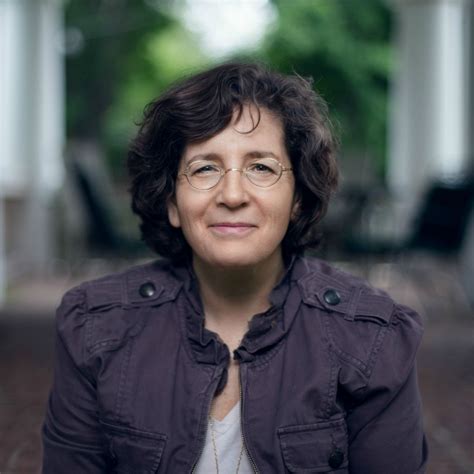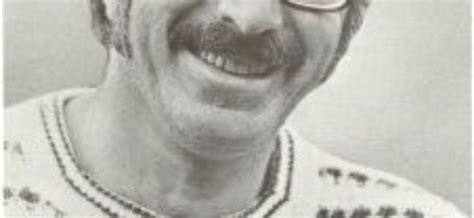A Quote by Betsy Lerner
The world doesn't fully make sense until the writer has secured his version of it on the page. And the act of writing is strangely more lifelike than life.
Related Quotes
The world doesn’t fully make sense until the writer has secured his version of it on the page. And the act of writing is strangely more lifelike than life….every person who does serious time with a keyboard is attempting to translate his version of the world into words so that he might be understood…. Your job is to marshal the talent you do have and find people who believe in your work. What’s important, finally, is that you create, and that those creations define for you what matters most, that which cannot be extinguished even in the face of silence, solitude, and rejection.
In the greatest fiction, the writer's moral sense coincides with his dramatic sense, and I see no way for it to do this unless his moral judgement is part of the very act of seeing, and he is free to use it. I have heard it said that belief in Christian dogma is a hindrance to the writer, but I myself have found nothing further from the truth. Actually, it frees the storyteller to observe. It is not a set of rules which fixes what he sees in the world. It affects his writing primarily by guaranteeing his respect for mystery.
When you're young, your perception of what it means to be a writer is often less about the writing and more about what seems to be the accompanying life: speeches and travel and hanging out with other writers. You think that when you get published, your life will clarify itself to you somehow. But when you don't get published until you're middle-aged you know who you are already, and your life expands to make room for your writing, rather than orbiting around it. You realize that there's no one way to be a writer, and that the job is less of an identity and more of a vocation.
Writing is an act of hope. It means carving order out of chaos, of challenging one's own beliefs and assumptions, of facing the world with eyes and heart wide open. Through writing we declare a personal identity amid faceless anonymity. We find purpose and beauty and meaning even when the rational mind argues that none of these exist. Writing therefore, is also an act of courage. How much easier is it to lead an unexamined life than to confront yourself on the page?
Some of us need to discover that we will not begin to live more fully until we have the courage to do and see and taste and experience much less than usual... And for a man who has let himself be drawn completely out of himself by his activity, nothing is more difficult than to sit still and rest, doing nothing at all. The very act of resting is the hardest and most courageous act he can perform.
However great a man's fear of life, suicide remains the courageous act, the clear-headed act of a mathematician. The suicide has judged by the laws of chance - so many odds against one that to live will be more miserable than to die. His sense of mathematics is greater than his sense of survival. But think how a sense of survival must clamor to be heard at the last moment, what excuses it must present of a totally unscientific nature.
what a writer does is to try to make sense of life. I think that's what writing is, I think that's what painting is. It's seeking that thread of order and logic in the disorder, and the incredible waste and marvelous profligate character of life. What all artists are trying to do is to make sense of life.
He insists on a version of you that is funnier, stranger, more eccentric and prfound thatn you suspect yourself to be--capable of doing more good and more harm in the world than you've ever imagined--it is all but impossible not to believe, at least in his presence and a while after you've left him, that he alone sees through your essence, weighs your true qualities . . . and appreciates you more fully than anyone else ever has.
I have rarely read a more wonderful book than To Win Her Favor by Tamera Alexander. Rich with historical detail and fully developed characters, this novel held me spellbound until the last page. If you read one historical novel this year, make it To Win Her Favor. It will linger with you long after the last page.
It seldom happens that a man changes his life through his habitual reasoning. No matter how fully he may sense the new plans and aims revealed to him by reason, he continues to plod along in old paths until his life becomes frustrating and unbearable-he finally makes the change only when his usual life can no longer be tolerated.
You can approach the act of writing with nervousness, excitement, hopefulness, or even despair - the sense that you can never completely put on the page what's in your mind and heart. You can come to the act with your fists clenched and your eyes narrowed, ready to kick ass and take down names. You can come to it because you want a girl to marry you or because you want to change the world. Come to it any way but lightly. Let me say it again: you must not come lightly to the blank page.
A serious life, by definition, is a life one reflects on, a life one tries to make sense of and bear witness to. Truth in a memoir is achieved not through a recital of actual events; it is achieved when the reader comes to believe that the writer is working hard to engage with the experience at hand. What happened to the writer is not what matters; what matters is the large sense that the writer is able to make of what happened.
The act of writing bears something in common with the act of love. The writer, at his most productive moments, just flows. He gives of that which is uniquely himself. He makes himself naked, recording his nakedness in the written word. Herein lies some of the terror which frequently freezes a writer, preventing him from producing. Herein, too, lies some of the courage that must be entailed in letting others learn how one has experienced or is experiencing the world.






































